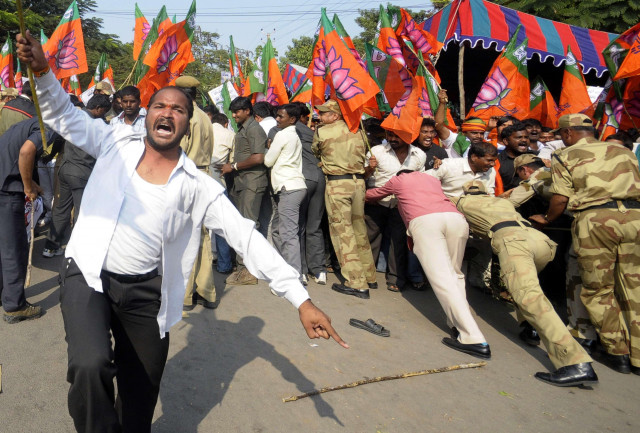Indian politics: Stage set for showdown
BJP-led alliance will turn up the pressure on government.

The National Democratic Alliance (NDA), a coalition of around eight political parties, is led by the BJP. It is pitted against the ruling United Progressive Alliance (UPA) led by the Congress, an alliance of 17-odd parties.
At the best of times, it is hard to keep the coalition on the same page. However, the opposition has got a chance of striking at the jugular following the involvement of one of the UPA allies in a decision that the opposition claims was taken to favour some corporate houses and involved bribery. The so-called 2G spectrum scam is about the rate at which additional spectrum was auctioned in India which sees the most cutthroat competition in mobile telephone rates in the world.
India has global telecommunications leaders salivating at the prospect of its vast untapped mobile market and they are apparently willing to do anything — including pay bribes — to get spectrum that will enable them to operate mobile services.
The charge against the government is that not only was the minister (from an alliance partner) appointed under corporate pressure, but also that the government looked the other way while illegal practices were followed in the auction and allocation of spectrum.
The Congress would normally just have ignored the outcry of the opposition because it has the numbers to defend itself in the Lok Sabha.
However, the problem is that other scams – the organisation of the Commonwealth Games where allegations of bribery to win contracts have been made; and a Congress minister’s involvement in the IPL – released bad odours.
The Congress got its own members to resign within days of scams breaking. But it had no control over allies and when the minister did resign, it appeared that he had quit because of the insistence of the opposition rather than because the Congress wanted to clean the Augean stables.
The BJP-led opposition’s cupboard has its own set of skeletons.
Several BJP ministers who had taken dubious decisions as telecom ministers are also being inquired into by the Supreme Court as part of an investigation that will go back to 1991.
But this has not deterred the opposition from attacking the government and demanding a Joint parliamentary Committee (JPC). Parliament was not allowed to function all through the winter session because the opposition wanted a JPC and the Congress refused to concede – for a JPC could conceivably summon the prime minister, something that could create a precedent.
There is danger ahead for the government because if the opposition continues to stonewall parliament, the union budget — to be passed on February 28 — might be held hostage to the opposition’s filibustering.
This much is certain: Indian politics is in for an interesting period ahead.
Published in The Express Tribune, January 11th, 2011.



















COMMENTS
Comments are moderated and generally will be posted if they are on-topic and not abusive.
For more information, please see our Comments FAQ